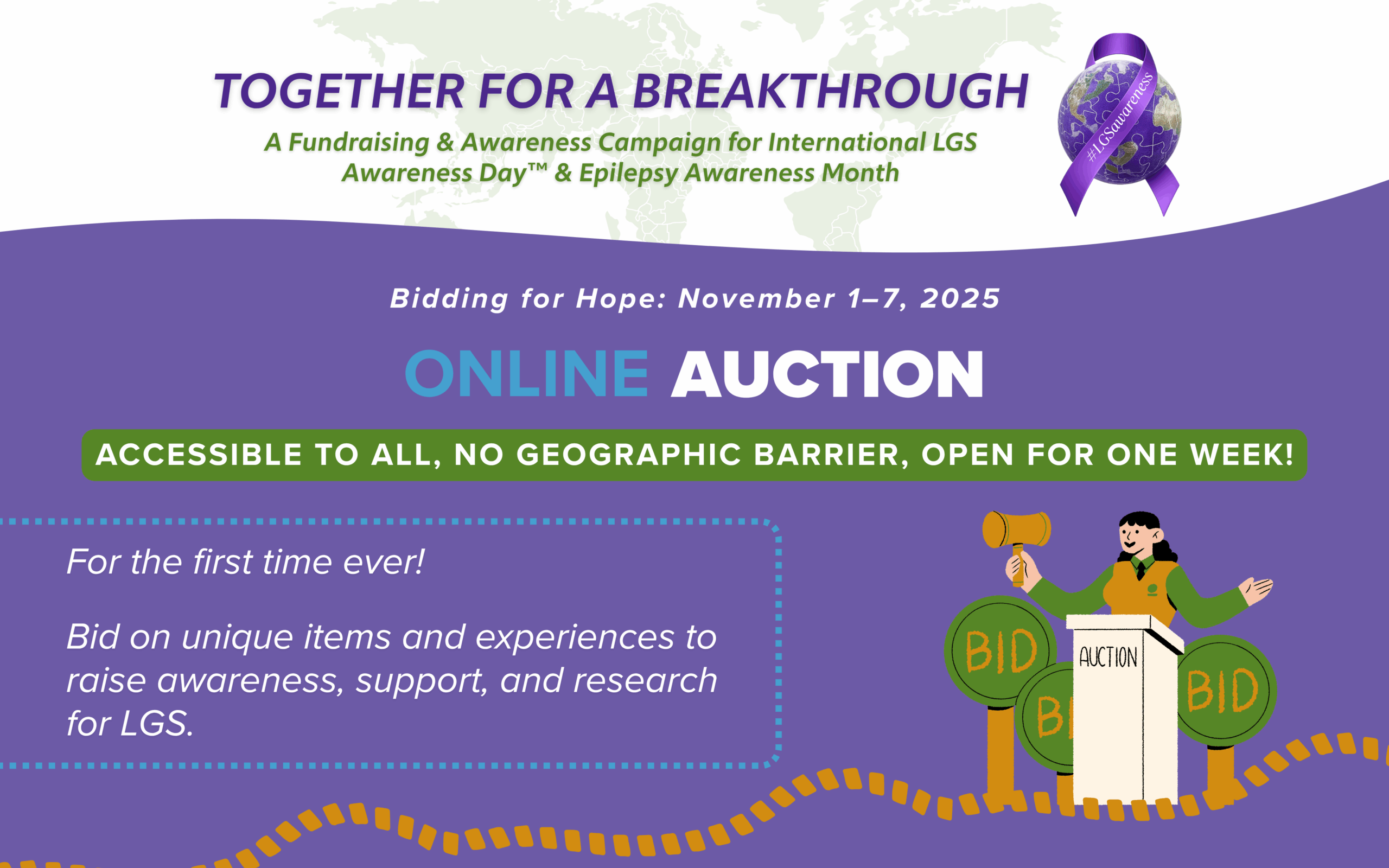Our community is stronger with facts! When it comes to CBD (cannabidiol), do you know fact from fiction?
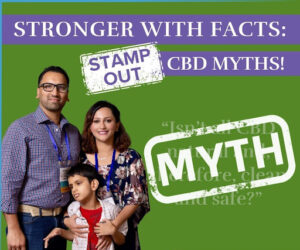 Cannabidiol (CBD) is an exciting focus of medical research, popular media, and legislation related to cannabis. Its presence is becoming ubiquitous on the shelves of health food stores and search engine results for numerous medical conditions, but don’t believe everything you hear. While CBD is an incredibly safe and therapeutic component of cannabis, there are many myths and misconceptions associated with it. Let’s take a look at a few and get the facts!
Cannabidiol (CBD) is an exciting focus of medical research, popular media, and legislation related to cannabis. Its presence is becoming ubiquitous on the shelves of health food stores and search engine results for numerous medical conditions, but don’t believe everything you hear. While CBD is an incredibly safe and therapeutic component of cannabis, there are many myths and misconceptions associated with it. Let’s take a look at a few and get the facts!
What is Cannabidiol (CBD)?
Cannabidiol (known as CBD) is one of the over 500 molecules found in hemp (cannabis) plants and can be extracted and purified for use in humans. Unlike THC, another molecule in cannabis, CBD does not alter the mind to produce a “high.” CBD can have side effects and interfere with other medications.
Get the Facts about CBD!
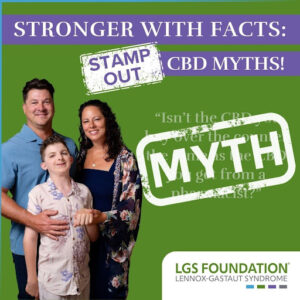 Myth Busted!
Myth Busted!
Purified CBD prescribed by a doctor and distributed by a pharmacy has strict purity, dose, and quality standards, which the FDA ensures are met with every batch.
Purified CBD is not synthetic. It is extracted from the cannabis plant.
Unlike purified CBD, over-the-counter CBD products can vary significantly in purity, dose, and quality. A product from the same manufacturer may even differ when they make a new batch.
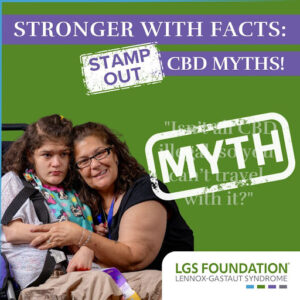 Myth Busted!
Myth Busted!
FDA-approved, purified CBD is recognized by the Transportation Security Administration and is permitted to legally cross state lines in the U.S. with a prescription.
For over-the-counter CBD products, it’s important to check the regulations in your destination state before you depart, as State, Federal, and International laws can vary. When traveling, keep FDA-approved, purified CBD in its original packaging and carry the prescribing information with you.
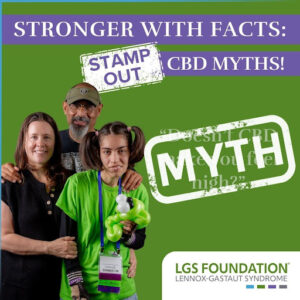 Myth Busted!
Myth Busted! No. FDA-approved, purified CBD is not intoxicating and does not produce a feeling of euphoria or a “high.” It is important to consider that CBD purchased over the counter is not controlled for dose, purity, or quality.
CBD is one of the over 500 molecules in the cannabis plant. Unlike THC, another molecule in cannabis, CBD does not alter the mind to produce a high.
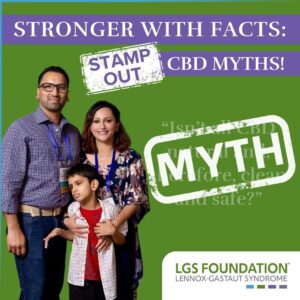 Myth Busted!
Myth Busted! No. CBD products can have side effects, be impure, and interact with other medications. FDA-approved CBD is highly controlled for purity, but may still cause side effects and/or interact with other medications. It is important to tell your healthcare providers about all medications your loved one takes to avoid interactions and to ensure their safety.
CBD comes from the cannabis plant and this plant is affected by the environment. FDA-approved CBD medicine is the only product that ensures quality and purity. Other CBD products may try to be as clean, but some have been found to contain contaminants (heavy metals, pesticides) and inconsistent levels of CBD, along with THC.
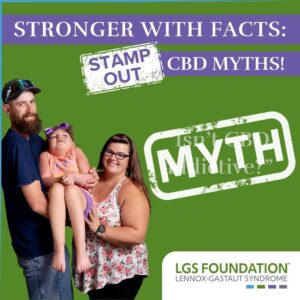 Myth Busted!
Myth Busted!FDA-approved CBD is not considered addictive and does not produce a “high.” Unlike some other substances, CBD does not lead to dependency or abuse. However, it is important to remember that CBD purchased over the counter may contain other substances that can cause a high or be addictive.
CBD is generally well-tolerated.
FDA-approved CBD, which is purified, does not produce addictive signs and symptoms. It contains 99% pure CBD and minimal other plant constituents, including 0.001% THC. To produce a 100% pure CBD, the product would need to be synthetically derived.
Hemp products do contain THC, which can have high enough concentrations to be intoxicating.
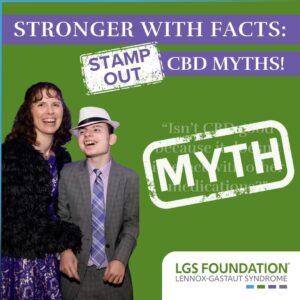 Myth Busted!
Myth Busted!CBD of any kind may interact with other medications and you should tell your doctor about all medications your loved one is on. CBD, like any medication, should be used with medical supervision.
If you are on any form of CBD, it is important to tell your healthcare provider.
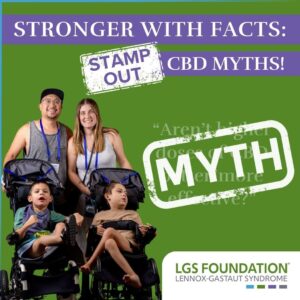 Myth Busted!
Myth Busted!Finding the right dosage can be variable. It depends on how well the medicine is working and if your loved one experiences side effects. Dosing should be guided by your loved one’s healthcare provider.
Finding the right dosage often involves some trial and error and should be guided by an experienced healthcare provider.
Additional Information:
The information here is not intended to provide diagnosis, treatment, or medical advice and should not be considered a substitute for advice from a healthcare professional. The content provided is for informational purposes only. LGS Foundation is not responsible for actions taken based on the information included on this webpage. Please consult with a physician or other healthcare professional regarding any medical or health-related diagnosis or treatment options.
Thank you to Jazz Pharmaceuticals for making this important educational campaign possible.
Updated 11/08/24 (AM)

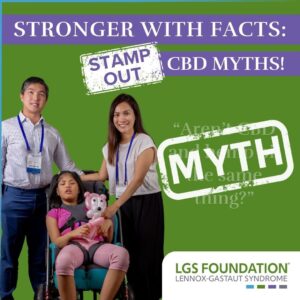 Myth Busted!
Myth Busted!